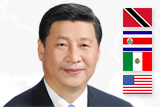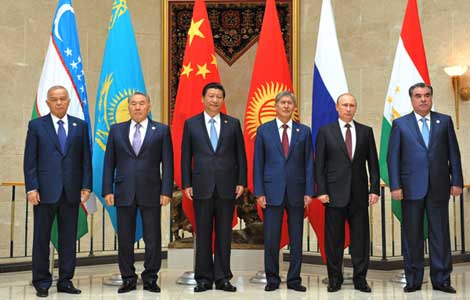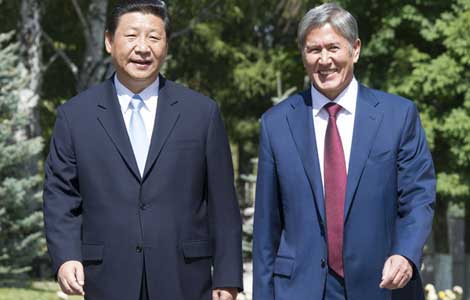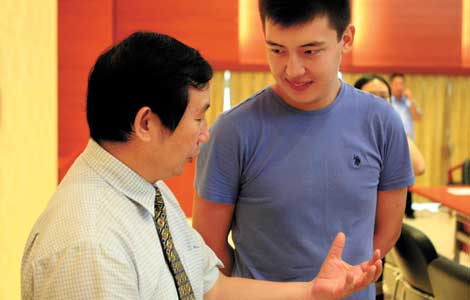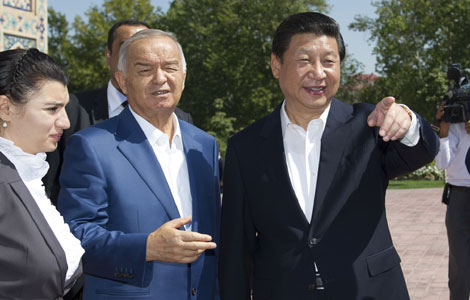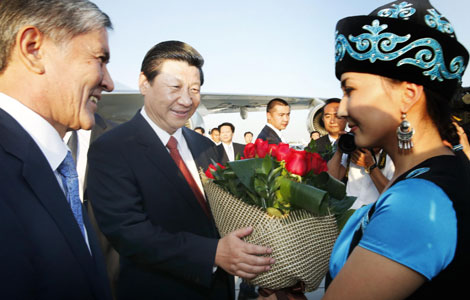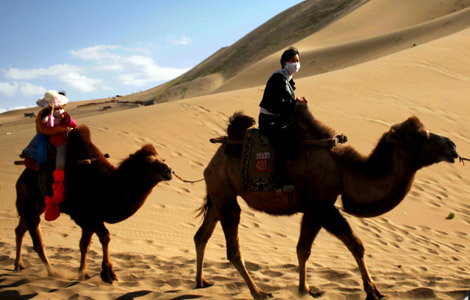How Beijing's Yabao Road market started flourishing
Updated: 2013-09-09 01:41
By ZHAO SHENGNAN (China Daily)
|
|||||||||
If Yabao Road, a retail hub in Beijing that attracts many Russians, reflects the history of China-Russia trade over the past decades, Feng Shixia may be among those best qualified to tell stories of its ups and downs.
"I remember once I brought my kid to a hospital near the road in the 1990s, and I was puzzled by the many bustling outdoor stalls there. I had no idea why the clothes, which just hung in a line between two roadside trees trunks, could attract so many Russians customers," said Feng.
At the time, Feng was a saleswoman in a shopping mall, and she could hardly foresee that she would later be involved in seeking to tap into the street's market in clothes aimed at Russian customers.
She became chairwoman on the board of Beijing Clasna Fashion Co, a producer of down coats and a leader in national efforts to regain the Russian market that was previously cornered by the street market.
The Yabao Road market took shape in 1988 and flourished after the collapse of the Soviet Union in 1991. Its low prices and plentiful supplies met the soaring demand of eastern European countries for daily necessities such as clothes and shoes.
"At that time, Chinese down coats were indeed cheap — about 40 yuan ($6.50) each — but most of the coats were of low quality, made in home workshops, with feathers from chickens instead of ducks. And there was nothing in terms of style or brands," Feng said.
The boom did not last for long. The value of Chinese down coats exported to Russia fell to less than $7 million in 2000 from $200 million around 1993, media quoted official statistics as saying.
In 2003, the Russian government burned a large number of down coats imported from China to protest at the fake and shoddy products, which often smelt terrible after long periods sealed in shipping containers.
However, Feng was able to capitalize on this downturn to sell products of a higher standard.
"The decreasing numbers didn't mean that there was no demand anymore, but showed that Russians had lost faith in Chinese products, the cheap ones," she said.
In 2000, she began selling down coats "with more fashion styles and good quality" in a 16-square-meter shop in Yabao Road. She expanded her business five years later by founding the brand "Clasna", which means "bright and beautiful" in the Russian language.
"Russian customers have brand loyalty when shopping, so we also took steps that are rare among our peers, staging new product releases, which cost hundreds of thousands of dollars, and hiring local Russian stars to promote our brand," she added.
Feng even risked selling products to Russians on credit, and giving massive discounts to her Russian partners during the global recession in 2008.
"Actually, our Russian partners are trustworthy, and I should also stick to the high quality and good designs," said Feng, who hires designers in Moscow and Milan to follow the fashion trends.
After years of effort, exports of down coats from China to Russia have rebounded, along with the growing China-Russia trade, which reached $88.16 billion in 2012. China is currently Russia's largest trading partner.
Today's Yabao Road, one of the largest clothing wholesale centers in Beijing, has about 14 well-decorated shopping malls, full of foreign traders.
Despite the increasingly fierce competition at home and the still-weak purchasing power in Russia due to the ongoing recession, Feng said she was optimistic about the future of her company and of bilateral trade.
"Today's Yabao Road is not the old one ... Most of the traders here are nurturing their own brands for long-term development, and I believe the Russian market will also be better next year," she said.
Schedule




